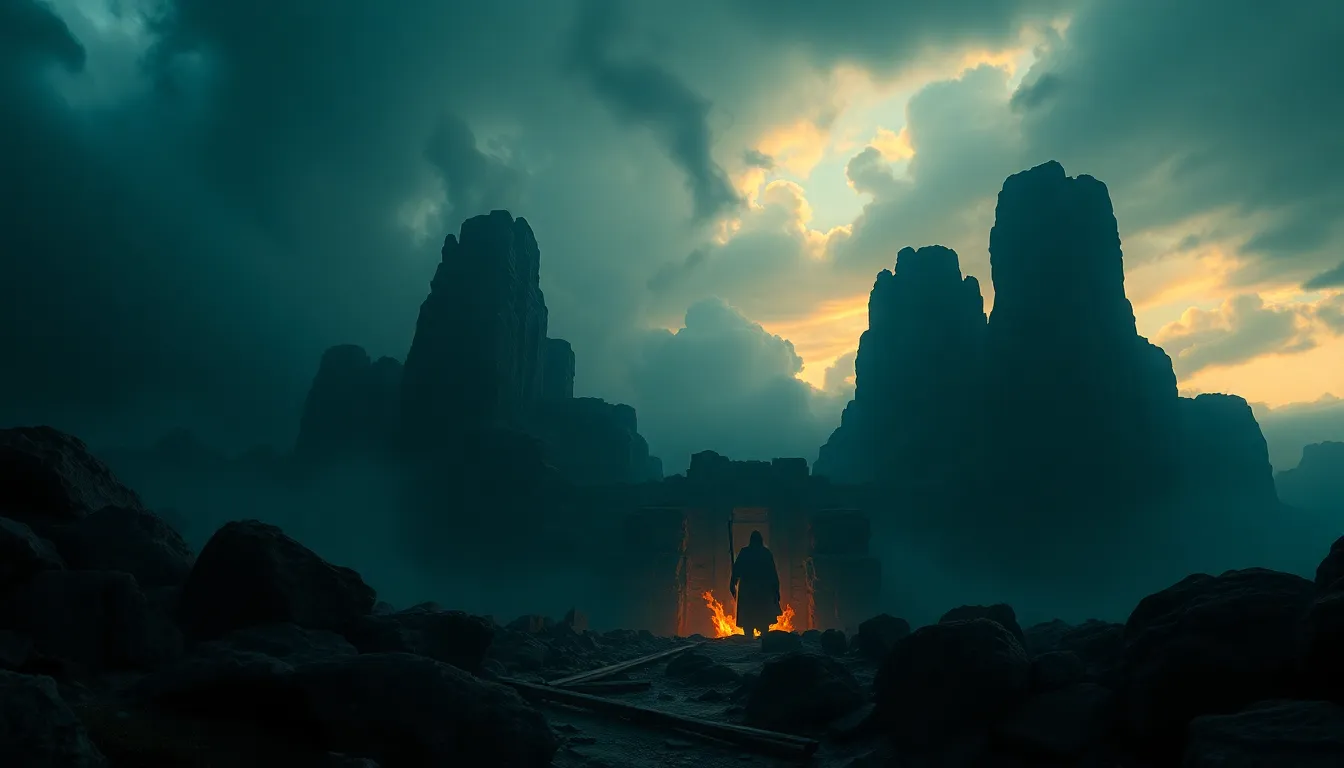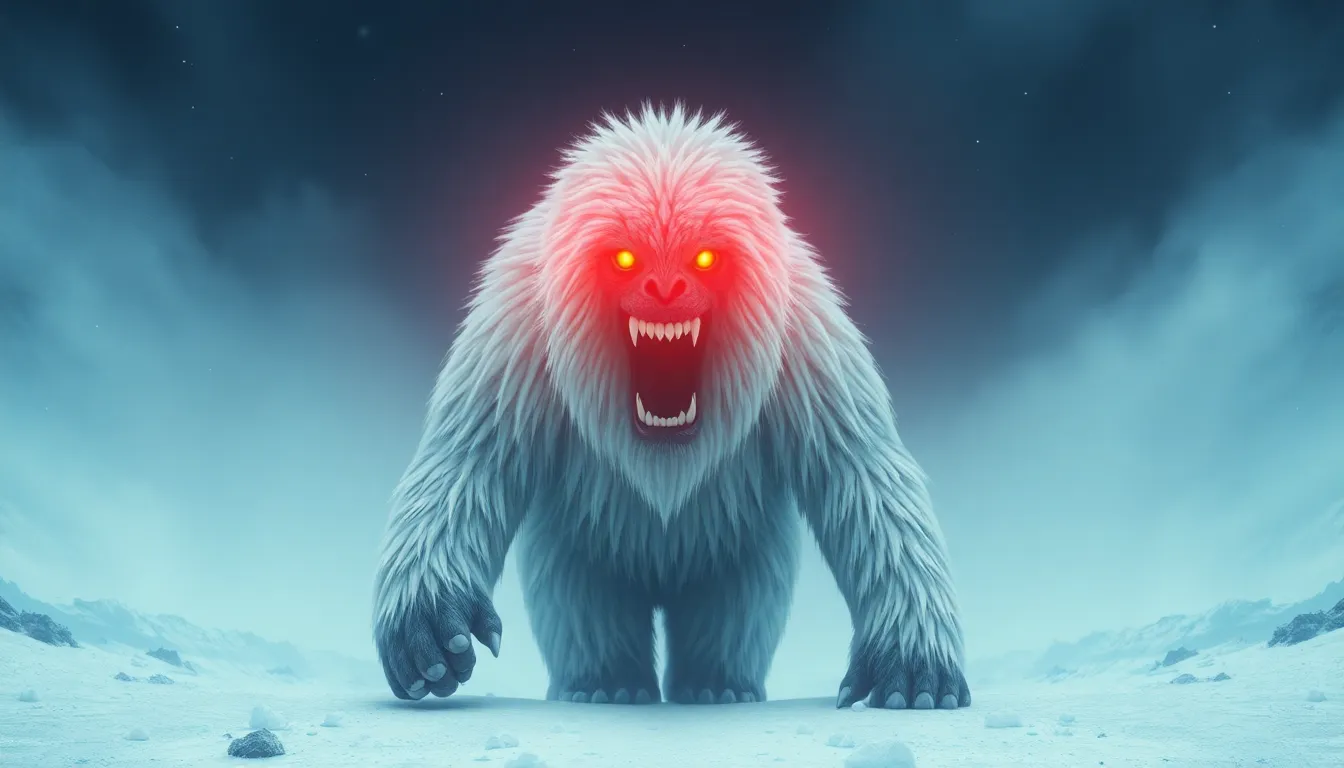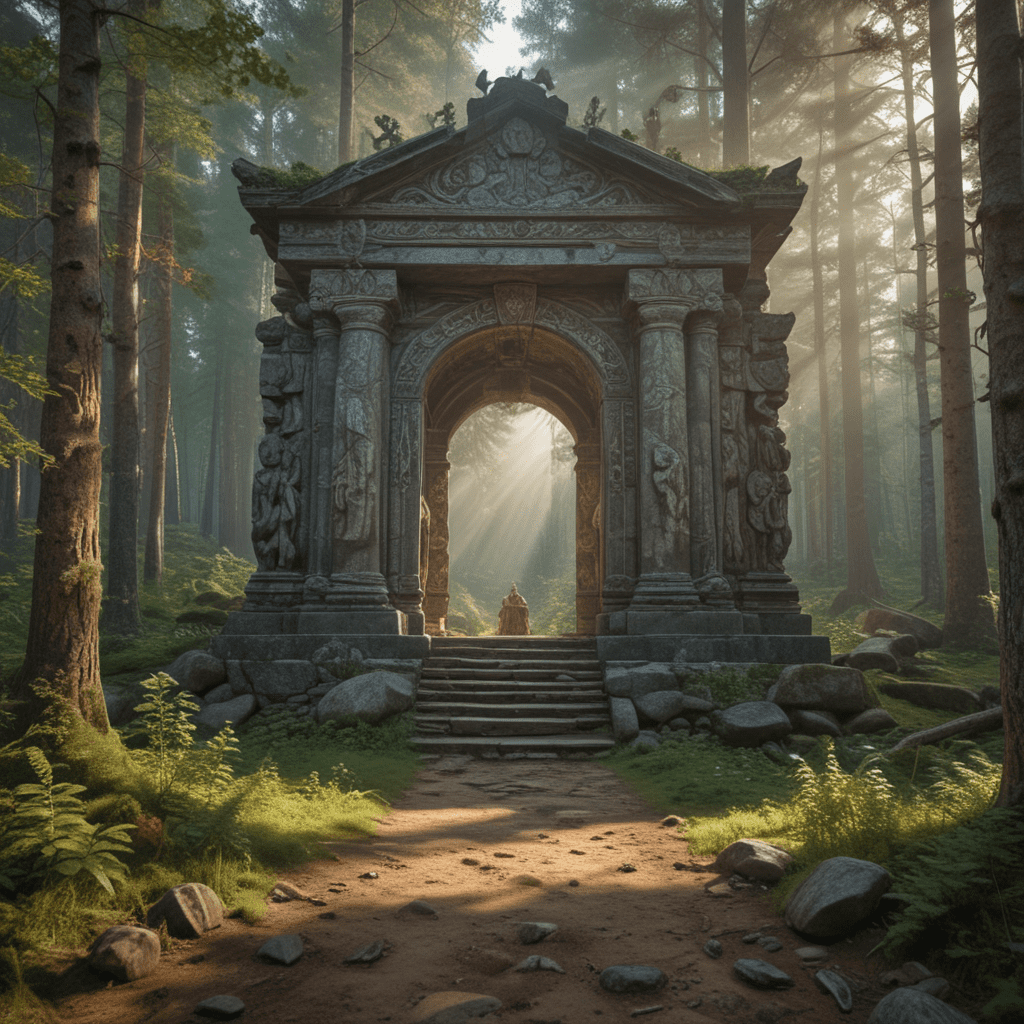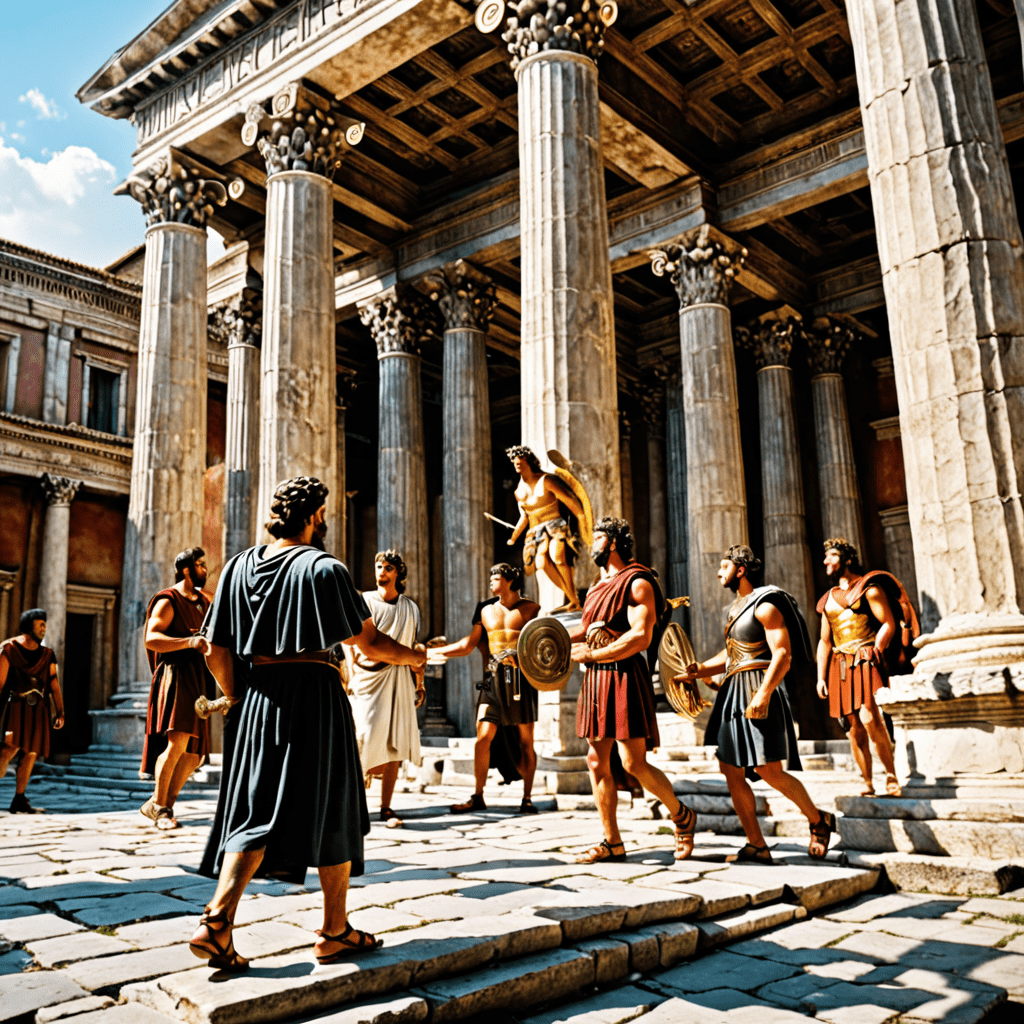The Mythical Forge: How Creation Myths Shape Our Worldviews
I. Introduction to Creation Myths
Creation myths are foundational narratives that explain the origins of the world, humanity, and the cosmos. They serve not only as the bedrock of various cultures but also as lenses through which individuals perceive their existence and place in the universe. These myths are significant as they encapsulate the values, beliefs, and traditions of societies, shaping their worldviews over centuries.
The role of creation myths varies across cultures, from providing explanations for natural phenomena to offering moral guidance and a sense of belonging. This article aims to explore the profound influence of these myths on contemporary worldviews, examining their historical contexts, structures, psychological impacts, and their interplay with modern society and science.
II. Historical Context of Creation Myths
Creation myths have ancient origins, rooted in the early civilizations that sought to understand their environment and existence. Across cultures, these myths have evolved, yet they often share common themes.
A. Origins of creation myths in ancient civilizations
Many ancient civilizations developed their creation myths as a means to explain the mysteries of life and the cosmos. For instance, the ancient Egyptians created elaborate stories involving gods like Ra and Osiris, while the Greeks spoke of Chaos giving birth to Gaia and other primordial entities.
B. Comparative analysis of creation stories across major cultures
- Indigenous cultures: Many indigenous tribes have rich oral traditions that recount the creation of the earth, often emphasizing the interconnectedness of life and nature.
- Mesopotamian myths: The Enuma Elish details the Babylonian creation story, illustrating the power struggles among gods and the eventual establishment of order.
- Eastern philosophies: In Hinduism, the cosmic dance of Shiva represents the cycle of creation and destruction, while Buddhism emphasizes the impermanence of existence.
- Abrahamic traditions: The Genesis narrative in the Bible presents a monotheistic view of creation, where God creates the world in six days and rests on the seventh.
III. The Structure of Creation Myths
Creation myths often share similar structures and themes, facilitating their understanding across cultures.
A. Common themes and motifs in creation stories
- Chaos and order: Many myths begin with a chaotic void from which order is established, symbolizing the triumph of creation over nothingness.
- The role of deities or supernatural forces: Creation is frequently attributed to the actions of gods or divine entities, reflecting the cultural values surrounding power and authority.
- The significance of the natural world: Creation stories often highlight the importance of nature, with elements like earth, water, and sky playing vital roles.
B. The narrative arc: from void to creation
The narrative arc typically transitions from a state of formlessness to the emergence of life and order, emphasizing the transformational journey that shapes the world as we know it.
IV. Psychological Impact of Creation Myths
Creation myths are not merely stories; they profoundly affect the psychology of individuals and societies.
A. Formation of identity through shared narratives
These myths create a collective identity among people, fostering a sense of belonging and shared history. They provide a cultural framework that shapes how individuals perceive themselves and their communities.
B. Creation myths as a source of moral and ethical frameworks
Through their narratives, creation myths often convey moral lessons and ethical guidelines, helping societies establish norms and values that govern behavior.
C. The role of mythology in coping with existential questions
Creation myths offer explanations for fundamental existential questions, such as the purpose of life and the nature of death, providing comfort and understanding in the face of uncertainty.
V. Creation Myths in Modern Society
In contemporary culture, there is a noticeable resurgence of interest in mythology, reflecting its enduring relevance.
A. The resurgence of interest in mythology in contemporary culture
Modern society increasingly embraces mythology through various mediums, including literature, film, and art, often reimagining ancient stories for new audiences.
B. Influence of creation myths in literature, art, and media
Creation myths often serve as inspiration for countless works, influencing storytelling techniques, themes, and character development.
C. Case studies: Popular films and books inspired by creation myths
- Avatar (2009): This film draws from various creation myths, emphasizing the connection between nature and spirituality.
- American Gods by Neil Gaiman: This novel explores the clash of old and new beliefs, weaving together various mythologies, including creation stories.
VI. Creation Myths and Scientific Understanding
The relationship between creation myths and scientific explanations is complex and often contentious.
A. Tension between mythological narratives and scientific explanations (e.g., Big Bang Theory)
Creation myths often conflict with scientific narratives about the origin of the universe, such as the Big Bang Theory, leading to debates about belief and evidence.
B. How myths can coexist with scientific paradigms
While some may see myths and science as opposing forces, others argue that they can coexist, serving different purposes in understanding human existence.
C. The role of mythology in shaping public perception of science
Myths can influence how societies perceive scientific findings, often framing discussions about topics like evolution and cosmology.
VII. The Role of Creation Myths in Religion and Spirituality
Creation myths are integral to various religious traditions, shaping beliefs and practices.
A. Creation stories as foundational texts in religious traditions
Many religions regard their creation myths as sacred texts, providing a framework for understanding the divine and the cosmos.
B. The impact of these myths on spiritual practices and beliefs
These narratives often inform rituals, celebrations, and moral teachings within spiritual communities.
C. Comparative analysis of creation myths in different religions
- Christianity: The Genesis account emphasizes a linear creation process.
- Hinduism: Presents a cyclical view of creation and destruction.
- Indigenous beliefs: Often portray creation as an ongoing process that connects people to the land.
VIII. The Political Dimensions of Creation Myths
Creation myths can have significant political implications, influencing national identities and ideologies.
A. The use of creation myths in national identities and political ideologies
Countries often adopt creation myths to foster a sense of unity and purpose among their citizens, shaping national narratives.
B. Case studies: Myths that have influenced political movements and policies
- American Manifest Destiny: Rooted in a belief of divine providence, influencing policies of expansion and colonization.
- Nationalism: Many nationalist movements utilize creation myths to legitimize their claims and unify diverse populations.
C. The role of mythology in shaping societal values and norms
Creation myths can reinforce existing values or inspire societal change, influencing everything from laws to cultural practices.
IX. Future of Creation Myths in a Globalized World
As the world becomes more interconnected, the evolution of creation myths is inevitable.
A. The evolution of creation myths in the digital age
Digital media allows for the rapid dissemination and reinterpretation of myths, creating new narratives that resonate with modern audiences.
B. The impact of globalization on traditional narratives
Globalization can lead to the blending of myths, creating hybrid narratives that reflect diverse cultural influences while challenging traditional beliefs.



